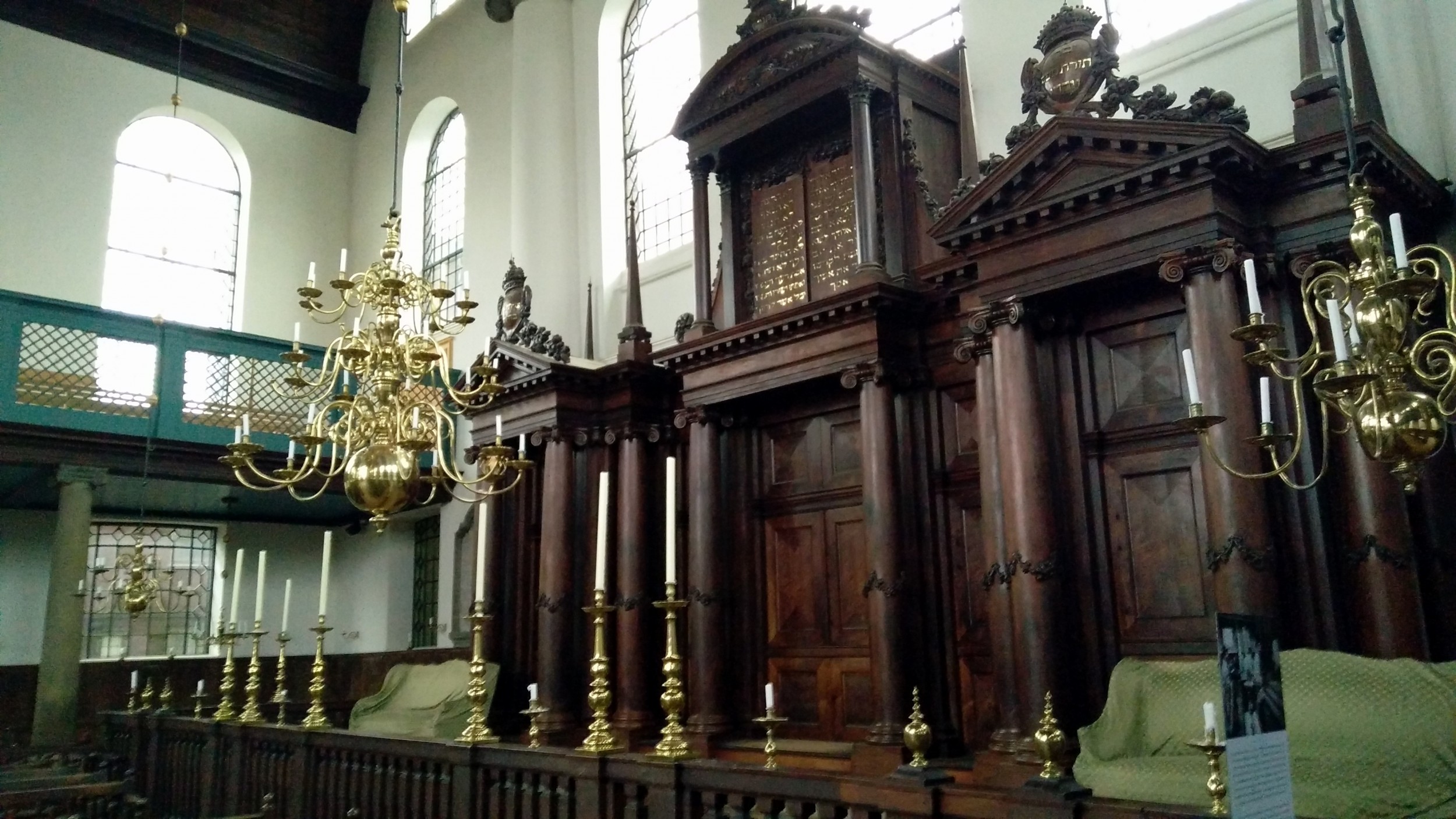
Jewish Portuguese Synagogue Amsterdam Visions of Travel
The Portuguese Synagogue, also known as the Esnoga, or Snoge, is a late 17th-century Sephardic synagogue in Amsterdam, completed in 1675. Esnoga is the word for synagogue in Judaeo-Spanish, the traditional Judaeo-Spanish language of Sephardi Jews . The Amsterdam Sephardic community was one of the largest and richest Jewish communities in Europe.

Portuguese Synagogue Amsterdam, old house of Jewish worship in Amsterdam by Martin von Rotz
The Portuguese Jewish community has two synagogues, the Esnoga, in the heart of Amsterdam, and the Esnoga in neighboring Amstelveen. Services in Amsterdam are held every Shabbat evening and morning, Sunday mornings and all holidays. Services in Amstelveen are held every Shabbat evening and morning, every weekday morning and on every holiday.

A Brief History Of Amsterdam's Portuguese Synagogue
The majestic Portuguese Synagogue from 1675 in the Old Jewish neighbourhood of Amsterdam. The Portuguese-Israeli Synagogue (aka Esnoga or Snoge) was built in the period 1670-75 by Elias Bouman at, what was at the time, the edge of the city. The synagogue is located on the Mr. Visserplein, today a busy roundabout between the Weesperstraat and.

Visit to the Portuguese Synagogue and the Jewish Historical Museum in Amsterdam, The Netherlands
Meestervisserplein 3. 1011 RD Amsterdam. Plan route. 020 - 53 10 310. The Portuguese Synagogue in the Jewish Cultural Quarter in Amsterdam. The 17th-century interior is still fully intact. Photo by David Aschkenas. You can visit the synagogue and its outbuildings with an audio tour. Photo by Marijn Scheeres.

Amsterdam Portuguese Synagogue Entrance Ticket GetYourGuide
The Portuguese Synagogue houses one of the most special Jewish heritage collections in the world. From the end of the sixteenth century, Jews of Spanish and Portuguese origin (Sephardic Jews) came to the flourishing trade city of Amsterdam. Since the elimination, and forced conversion to Catholicism of Jews in Spain and Portugal in 1492 and.

Synagogue portugaise billet d'entrée GetYourGuide
The Portuguese Synagogue is an important part of the Jewish Cultural Quarter in Amsterdam. During the Dutch Gol den Age in the 16th and 17th centuries, Jewish men and women wished to escape persecution in areas like Spain, Portu gal, and Eastern Europe. In the Netherlands' thriving Jewish community, families could finally feel at peace.

5662. The Portuguese Synagogue in Amsterdam was built in 1675 The Amsterdam Sephardic community
The Portuguese Synagogue in Amsterdam. The Portugese Synagoge, or Esnoga, is named after the Portuguese Jews who fled from Roman Catholic persecution in Portugal to Amsterdam during the sixteenth century.On completion in 1675, the Esnoga was the largest synagogue in Europe. Today, it is with the synagogue in Prague, the oldest synagogues still in use in the Europe.
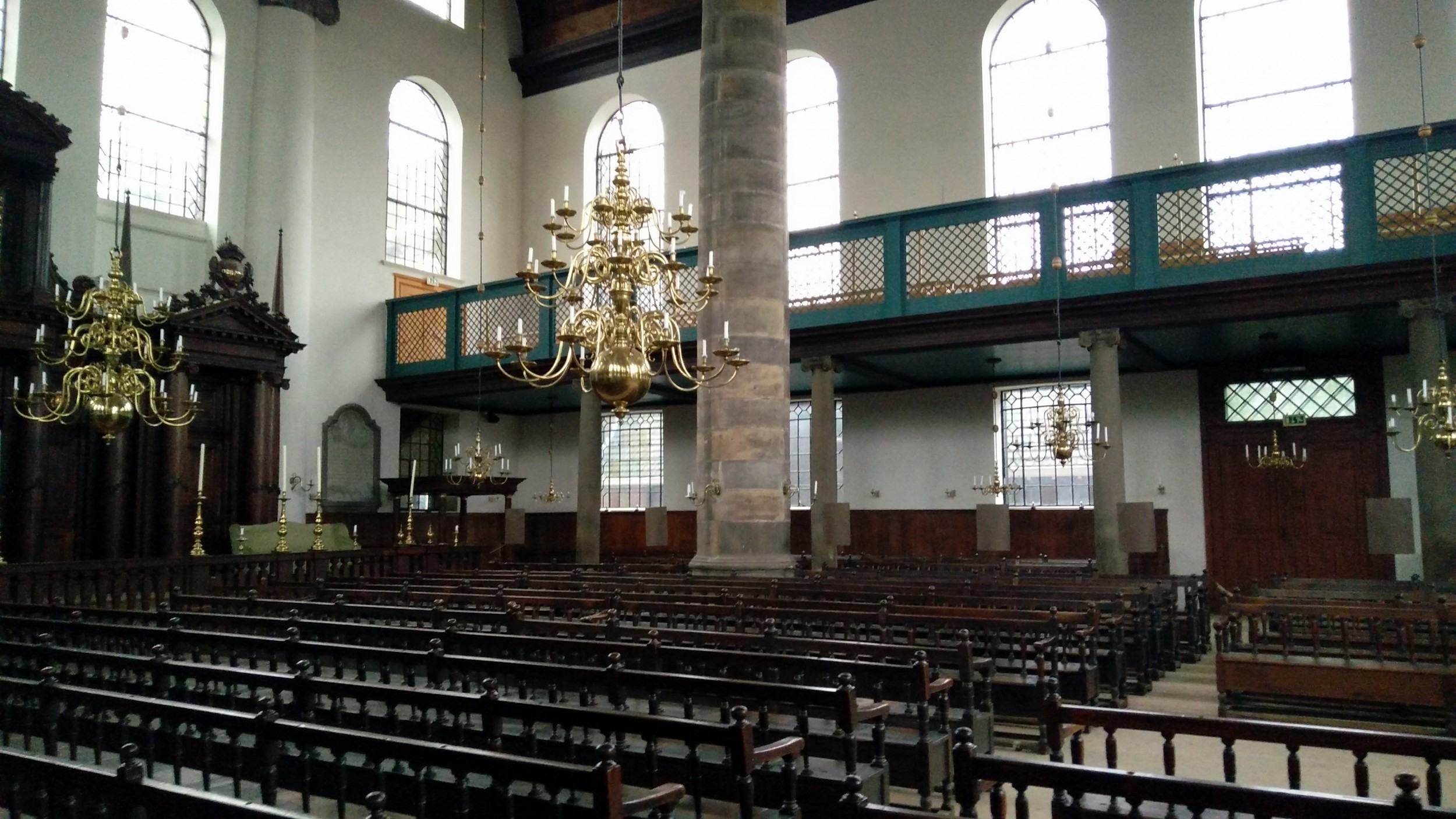
Jewish Portuguese Synagogue Amsterdam Visions of Travel
The beautiful Portuguese Synagogue, also called the Esnoga, is one of the most important legacies of the vibrant Jewish community in Amsterdam. Until the Holocaust Jews made up more than 10% of the population of Amsterdam. During the 16th and 17th century, many Jews that faced persecution in Spain and Portugal fled to Amsterdam.
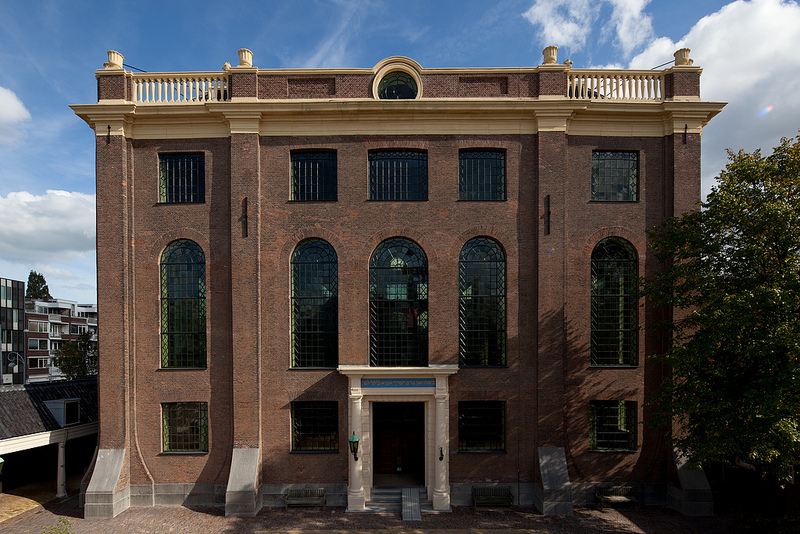
The Portuguese Synagogue Complex European Heritage Awards / Europa Nostra Awards
The Portuguese Synagogue is located very close to Waterlooplein, a short walk from the centre. From Amsterdam Central, take tram 14 or metro lines 51, 53 or 54 to Waterlooplein. Portuguese Synagogue, Mr. Visserplein 3, 1011 RD Amsterdam. T: +31 (0)20 5310 310, jck.nl.
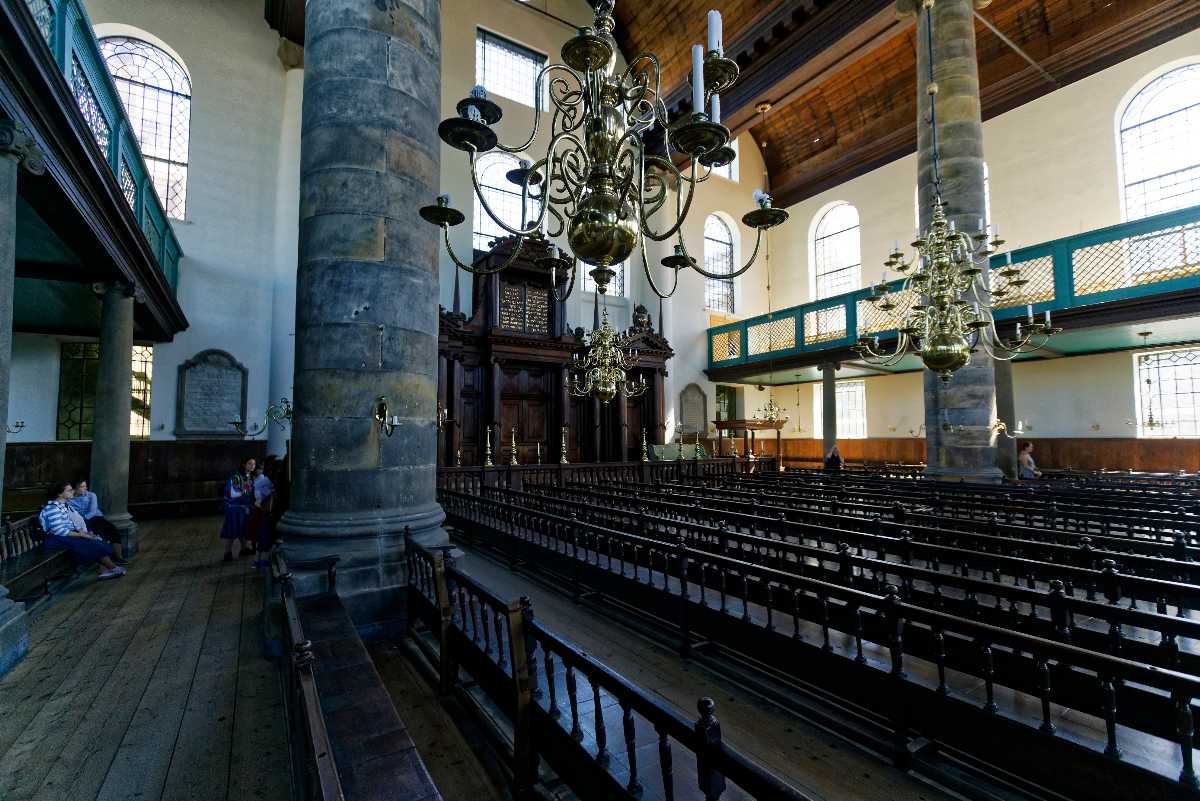
Portuguese Synagogue, Amsterdam Photos, History, Architecture
The Portuguese Synagogue, also known as the Esnoga, or Snoge, is a late 17th-century Sephardic synagogue in Amsterdam, completed in 1675. Esnoga is the word for synagogue in Judaeo-Spanish, the traditional Judaeo-Spanish language of Sephardi Jews.
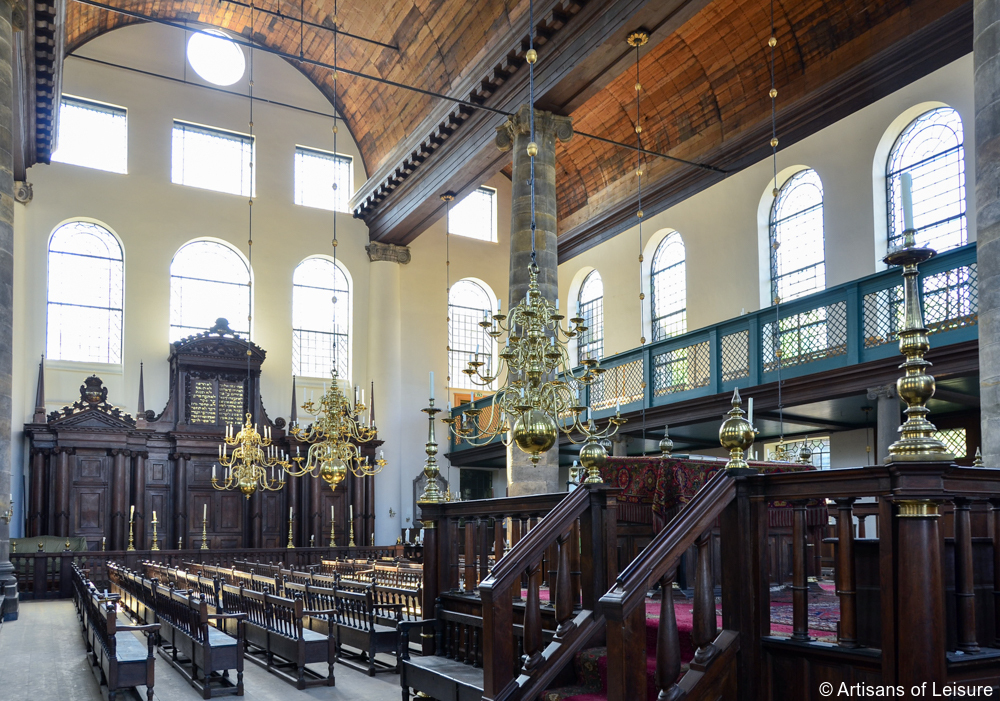
Portuguese Synagogue Amsterdam Jewish Tours Artisans of Leisure
The Esnoga is a Portuguese synagogue in the heart of Amsterdam. It began as three distinct Spanish-Portuguese communities, but when they combined, and the Ne.
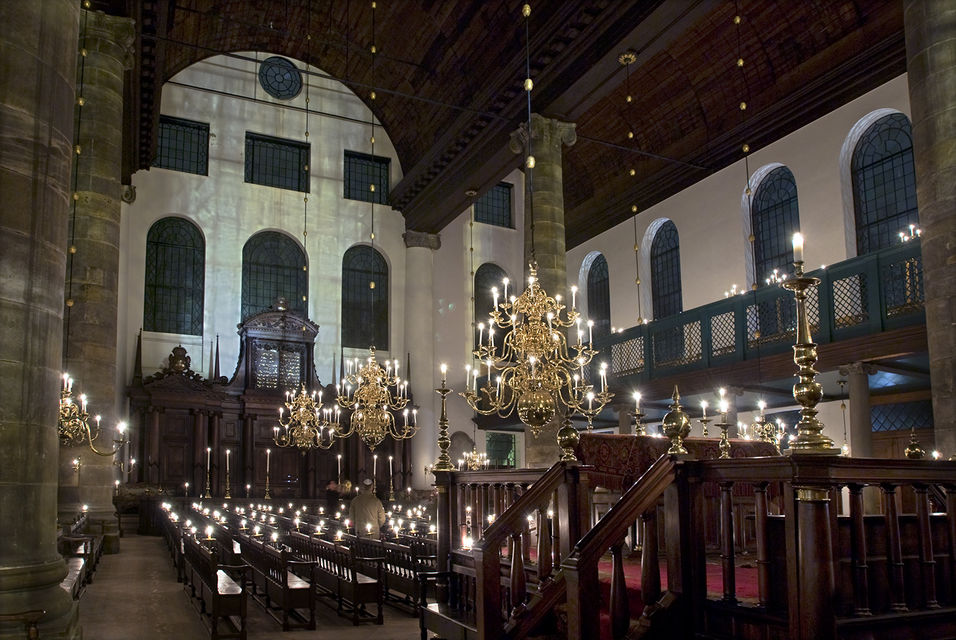
Sinagoga portoghese Informazioni e Biglietti VIVI Amsterdam
Portuguese Synagogue. The Portuguese Synagogue is an awe-inspiring testimony of the vibrant and rich Jewish culture in Amsterdam in the seventeenth century. The beautiful building, modelled after the Temple of Solomon, was the biggest synagogue of its time. It is still a functioning synagogue, but it is also open to visitors. Address: Mr.

Visit to the Portuguese Synagogue and the Jewish Historical Museum in Amsterdam, The Netherlands
A Brief History Of Amsterdam's Portuguese Synagogue. During the Dutch Golden Age, thousands of Jewish-Portuguese fled their homeland and immigrated to Amsterdam. In Portugal, they faced institutionalised anti-semitism and were forced to choose between conversion, expulsion or execution. Many decided to leave the Iberian peninsula altogether and.

Portuguese Synagogue Amsterdam Amsterdam for Visitors
Opening times. Since services are held in the Portuguese Synagogue on Shabbat and festivals, opening hours may vary for visitors. Opening Hours. Holidays and adjusted opening hours. Sunday to Thursday 10 am - 4 pm. Friday 10 am - 2 pm. Saturday Closed. January 1 - New Year's Day 12 pm - 4 pm.
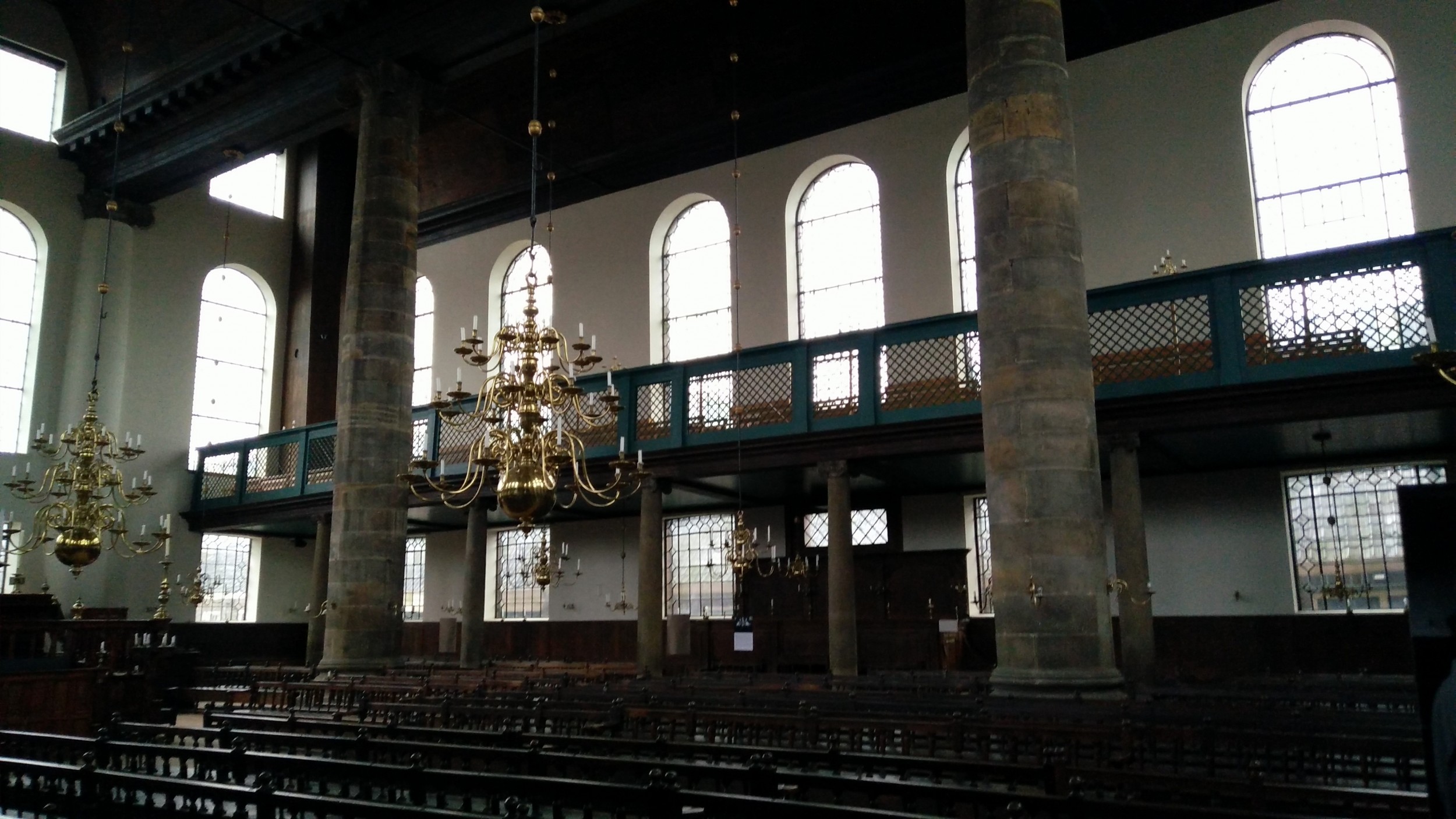
Jewish Portuguese Synagogue Amsterdam Visions of Travel
The Portuguese Synagogue is the functioning house of prayer of the Portuguese Jewish Community of Amsterdam. On days when no services are held, this magnificent esnoga and the hidden treasure chambers are open to visitors. Enjoy the serene tranquillity of the courtyard, and imagine yourself in a bygone age. It's easy to picture families.
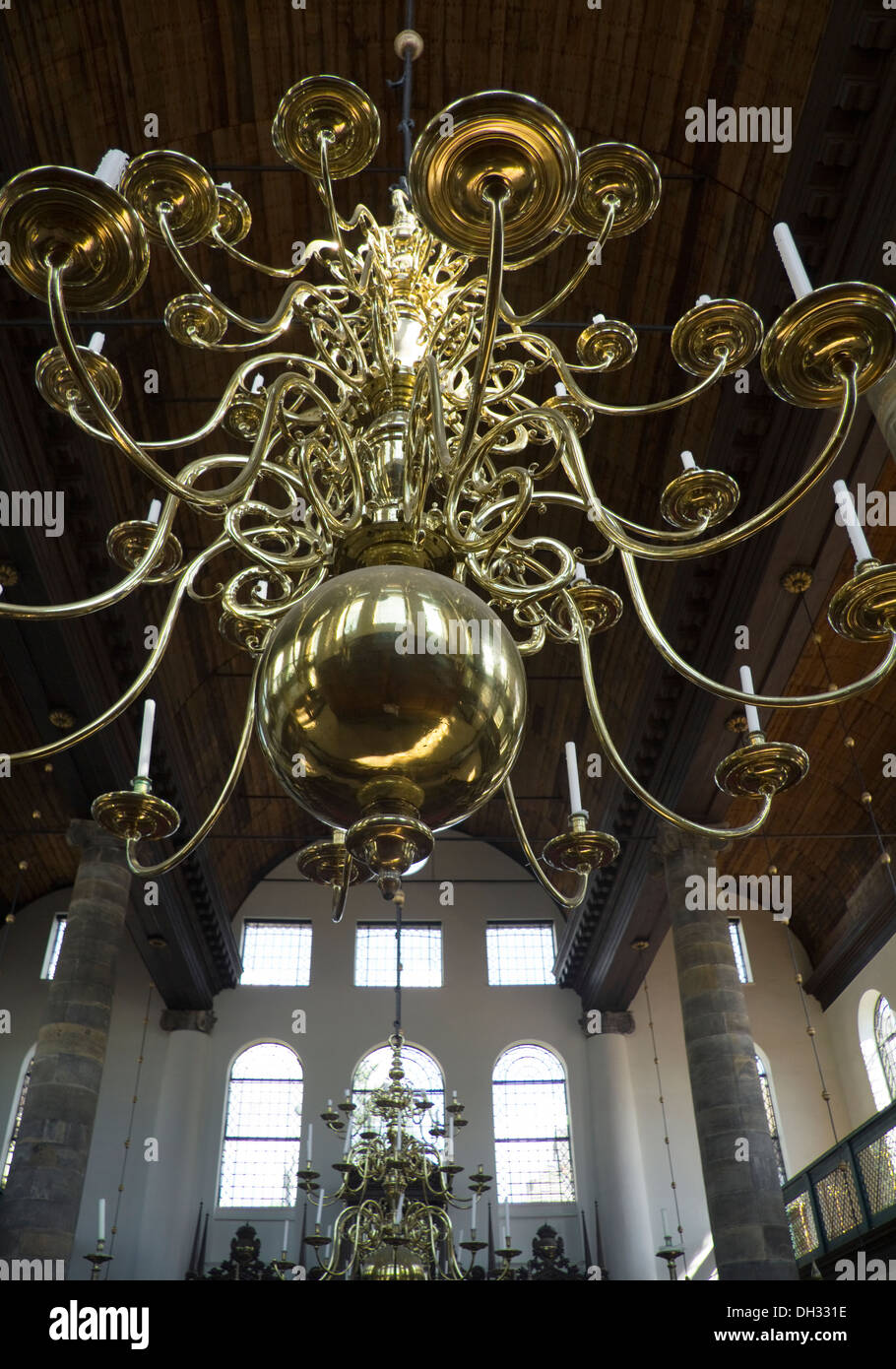
Portuguese Sephardic Synagogue Amsterdam Holland Stock Photo Alamy
The dedication of the Portuguese Synagogue in Amsterdam began with an opening ceremony on August 2, 1675, followed by eight days of celebrations. Claude Du Bosc's (1682-1745?) engraving after that of Bernard Picart (1673-1733) is based on an earlier depiction by Romeyn de Hooghe (1645-1708). Du Bosc portrays a lively,…